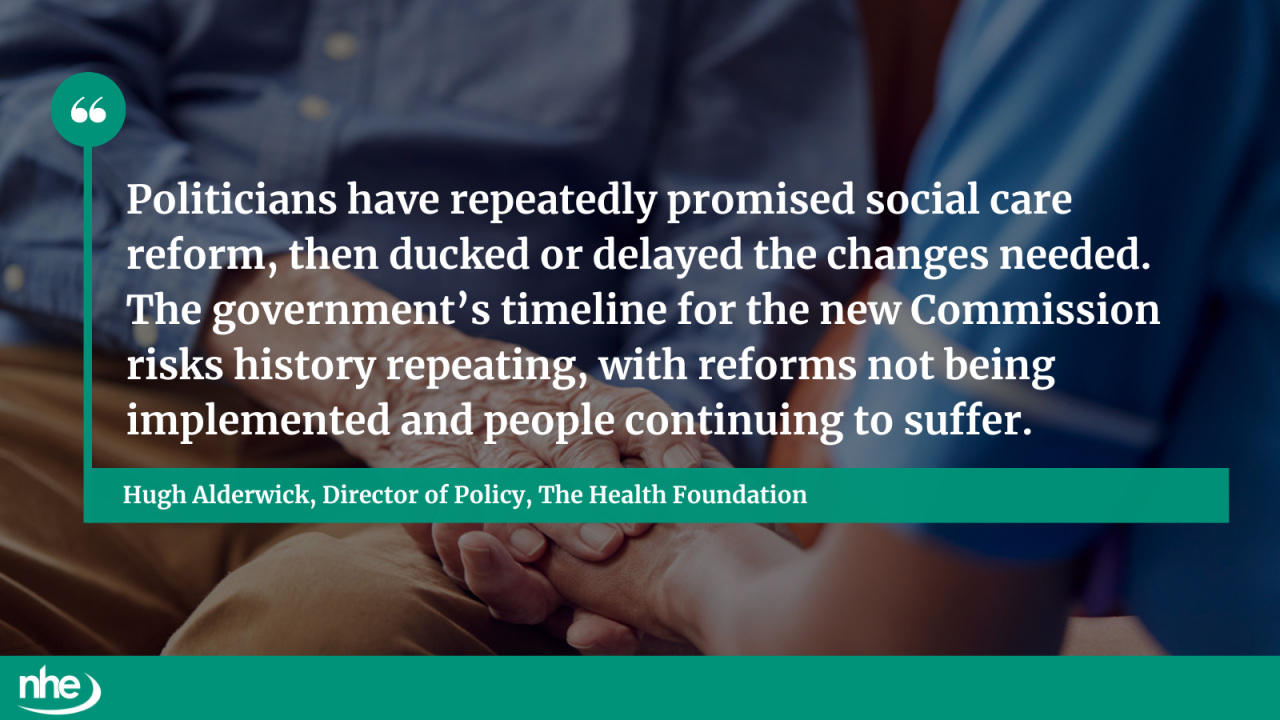Reporting on the problems of England’s social care sector, MPs have said that too much emphasis is put on the cost of change and not enough consideration is given to the human and financial cost of inaction.
Parliament’s cross-party Health and Social Care Committee has warned that the Government needs to measure the true cost of inaction on social care to present a robust financial case for reforms, fearing that without this, reforms from the Casey Commission will fail, leaving everyone to suffer under the current unsustainable system.
The Committee’s report highlights the lack of official data held by the Government relating to social care, suggesting that the Government does not know the potential monetary benefits of a reformed system and cannot assess which social care reform interventions would yield the highest returns. MPs fear that reforms will continue to be frustrated by concerns about expense unless there is a robust understanding of the cost of doing nothing.
MPs have called for the Government to commission research to fully quantify the cost of continued inaction and publish data, including an annual assessment of unmet care needs for adults and an annual estimate of how much delayed discharges are costing the NHS. The report outlines how the existing adult social care (ASC) system is not meeting the needs of the population, with the Government and taxpayers currently paying £32 billion a year for a broken system.
Despite the enormous contribution of unpaid carers, who provide care worth £184 billion a year, the broken system strains local authorities’ budgets, crowding out spending on other services like fixing potholes, keeping libraries open, and providing youth services. The report expresses concern about the growing disconnect between council tax revenue spending and residents' expectations, undermining trust in local democracy.
MPs have also emphasised that social care reform is integral to NHS reforms and cannot be a separate process. The Committee urges Baroness Casey to outline immediate steps for the Government to ensure the adult social care sector can play its vital part in NHS reform. The report highlights the social care sector’s potential to drive economic growth, contribute to regional rebalancing, and increase employment, noting that every £1 invested in the sector would generate a £1.75 return to the wider economy and an extra £1 billion spent on social care would create 50,000 jobs.
MPs have called on the Government to produce a growth strategy for the adult social care sector, urging a fundamental change in how the sector is viewed, seeing it as an enabler and discussing it in those terms in public debate.
The Health Foundation has responded to the report, with Director of Policy Hugh Alderwick saying:
"Today, MPs have laid bare the high price of continued political inaction on social care. Under the current system, many people go without the care they need, staff pay and conditions are poor, reliance on unpaid carers is high, and people face potentially catastrophic care costs.
"The report comes as the Casey Commission finally gets underway, almost a year after the government came to power promising social care reform. It is welcome that the Commission is taking a rounded view of social care and how to improve it. But we have been here before. Many of the options for reform are well known, and the Commission should build on the long line of previous proposals on fixing the broken system.
"Politicians have repeatedly promised social care reform, then ducked or delayed the changes needed. The government’s timeline for the new Commission risks history repeating, with reforms not being implemented and people continuing to suffer.
"Louise Casey’s first act was to meet people with lived experience of the current system, so she will have already heard first hand the urgent need for reform. We encourage her to move as quickly as possible to make recommendations to government and hold ministers to account for taking the action their predecessors have dodged.
"Delivering lasting change will require political will and investment. Next month’s Spending Review is a chance for government to show their commitment to improving social care by providing a down payment on the long-term investment needed for reform."

Image credit: iStock



















